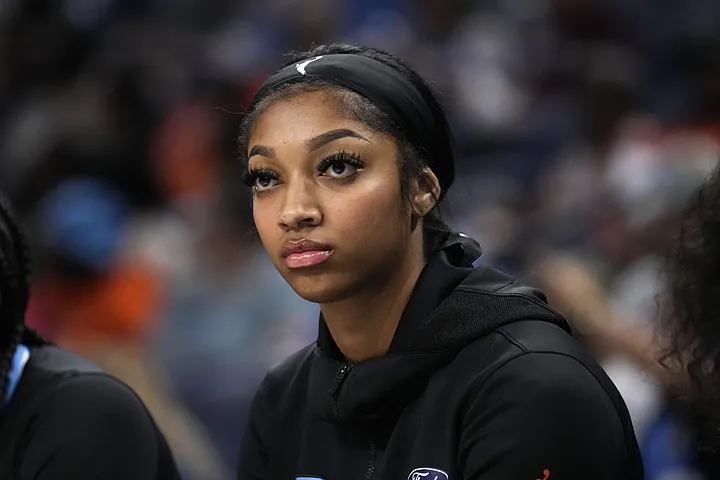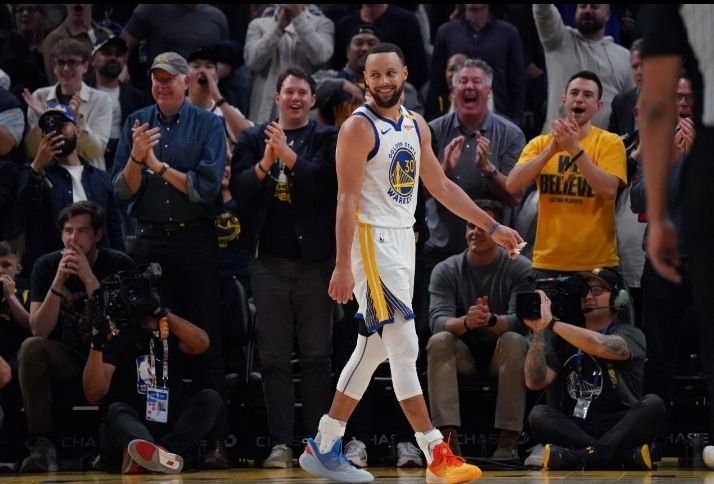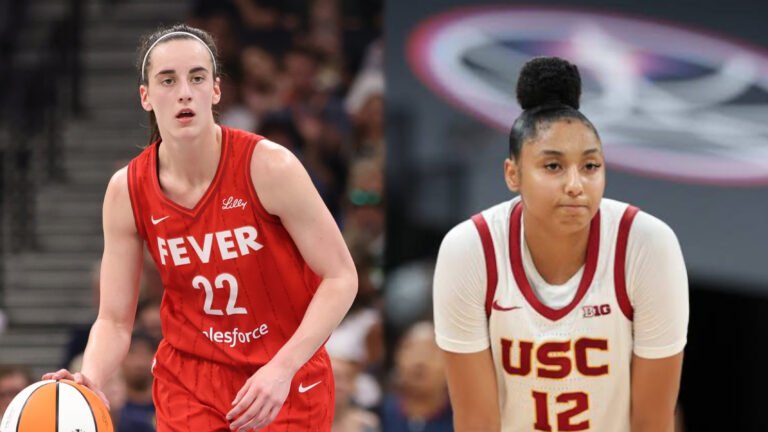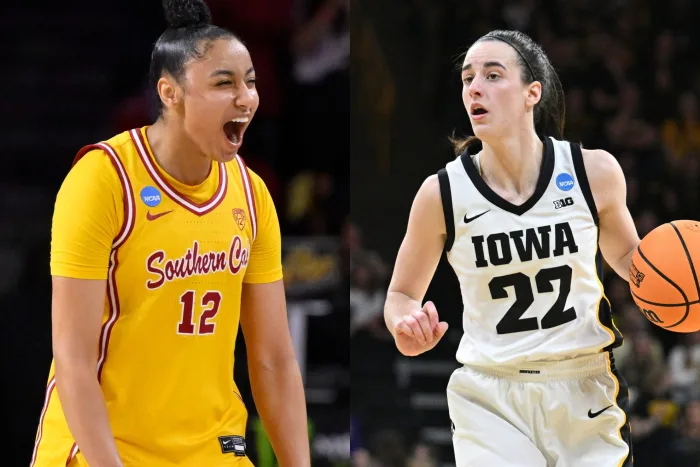
In a surprising marketing pivot, Reebok has unveiled a bold new campaign featuring NCAA basketball star Angel Reese. Dubbed “The Angel Reese Effect,” the campaign highlights Reese’s unapologetic personality and vibrant style, presenting her as the brand’s latest ambassador. However, what’s raising eyebrows is the subtle jabs at fellow basketball phenom Caitlin Clark, fueling an unexpected rivalry in the world of sports and fashion.
The campaign, which debuted earlier this week, features Reese in a series of striking visuals paired with bold slogans like “Style that speaks louder than stats.” While Reebok hasn’t directly named Clark, fans and analysts alike are pointing out the apparent digs, given Reese’s highly publicized on-court face-off with Clark during the NCAA championship. Social media has since exploded with comparisons between the two athletes, with some accusing Reebok of intentionally fanning the flames of competition.
Critics argue that the campaign might undermine the achievements of both athletes by framing their talents within a narrative of rivalry. “Angel Reese and Caitlin Clark are two of the brightest stars in basketball right now,” sports analyst Jamie Peters said. “Turning their success into a fashion feud feels like a distraction from their incredible skills on the court.”
Supporters of Reese and the campaign, however, see it as a celebration of her individuality. “Reebok is giving Angel a platform to express herself authentically,” said one fan on Twitter. “She’s showing young girls that they can be bold and unapologetic in any space.” For Reese, who has become a role model for her outspokenness and confidence, the campaign aligns perfectly with her brand.
Reebok, for its part, has remained tight-lipped about any supposed rivalry with Clark. In a statement, the brand emphasized that the campaign is about “breaking barriers and redefining what it means to be an athlete in today’s world.” Yet, the choice of timing and messaging has left fans skeptical, especially given Clark’s recent endorsement deal with a competing brand.
Meanwhile, Clark’s camp has not publicly addressed the campaign, but fans of the Iowa guard have rallied online, defending her against perceived slights. “Caitlin doesn’t need flashy ads to prove her greatness,” one supporter wrote. “Her game speaks for itself.” The debate has sparked an interesting dialogue about how female athletes are marketed and represented in the sports industry.
As the controversy grows, both Reese and Clark seem to be focusing on their basketball careers. Reese recently announced her plans to lead LSU in another championship run, while Clark continues to dominate headlines with her scoring prowess. For the athletes, the court remains their main stage, regardless of off-court chatter.
Whether intentional or not, Reebok’s campaign has succeeded in generating buzz around Angel Reese and reigniting discussions about the portrayal of female athletes. As fans debate the implications, one thing is clear: both Reese and Clark are carving their unique paths in sports and culture, with or without the headlines.






